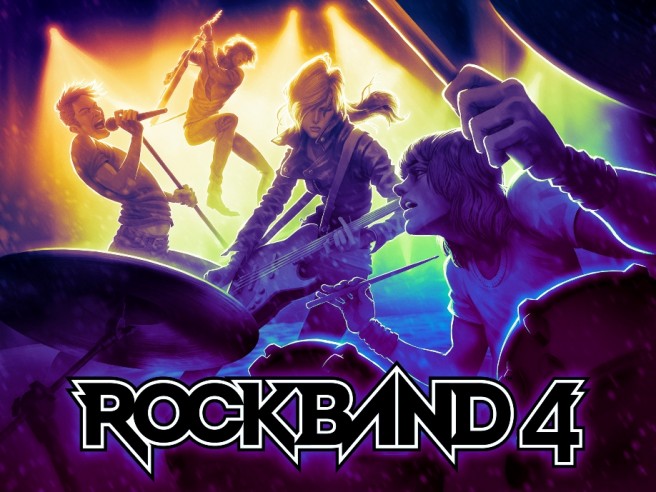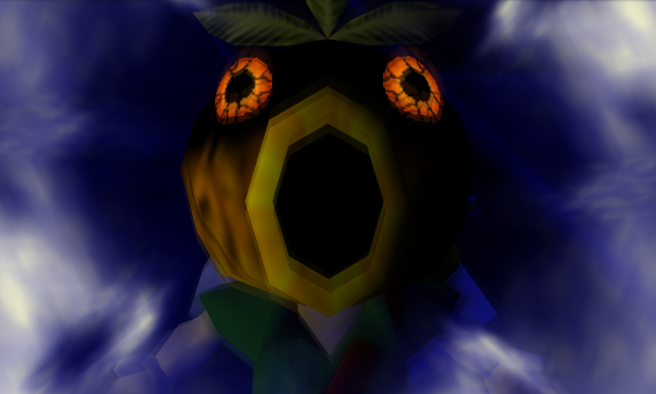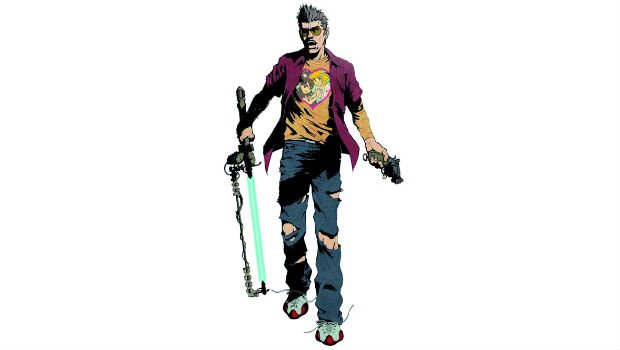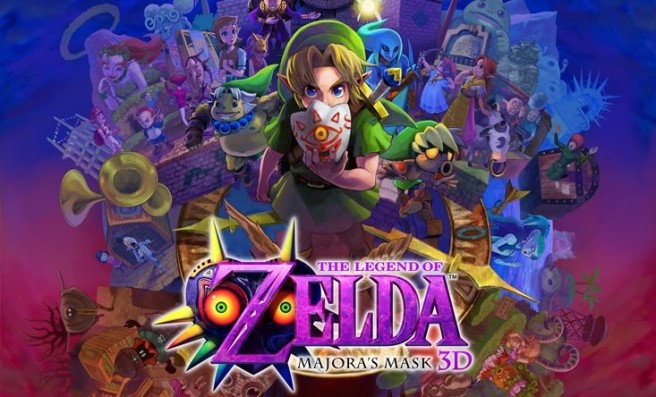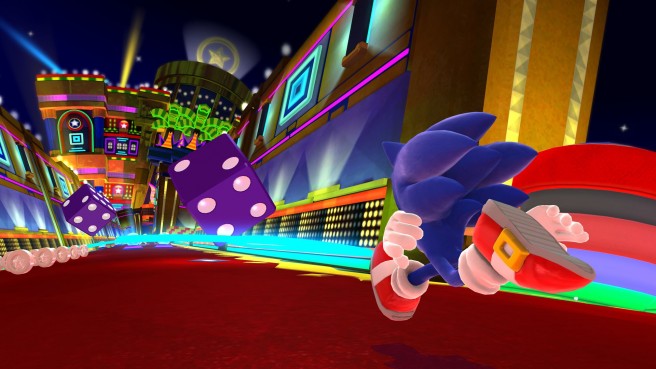Harmonix explains why Rock Band 4 isn’t on Wii U
Posted on 9 years ago by Brian(@NE_Brian) in News, Wii, Wii U | 26 Comments
Harmonix finally announced Rock Band 4, a game that has long been rumored to be in development. Sadly though, today’s news came with a confirmation that the game won’t be either Wii U (and Wii, which had to have been expected at this point).
Harmonix explained in a forum post that this is because of “shifting production priorities and capabilities of the studio”. The company further added that the team “had to prioritize opportunities on other platforms with historically larger RB audiences.”
The full explanation is as follows:
More: Daniel Sussman, Harmonix, interview, Rock Band 4
Hironobu Sakaguchi isn’t a fan of sequels
Posted on 9 years ago by Brian(@NE_Brian) in General Nintendo, News | 14 Comments
Speaking with IGN, Final Fantasy and The Last Story creator Hironobu Sakaguchi expressed his disinterest in making sequels.
“I don’t like sequels,” he said. “I hate them.”
Sakaguchi added, “That’s why every single Final Fantasy had a new cast of characters, a brand new story, [and] a different system.”
Sakaguchi still maintains his belief that a game should be a complete experience at his Mistwalker studio.
“Our promise to ourselves is that for every single game that we make, we are going to give it our all, and then we finish it, we’ll end it in such a way that there is no to be continued checklist.”
More: Hironobu Sakaguchi, interview
Aonuma on the pain behind Link’s transformations in Majora’s Mask, Fierce Deity Mask soul
Posted on 9 years ago by Brian(@NE_Brian) in 3DS, General Nintendo, News | 19 Comments
Another couple of excerpts from Game Informer‘s interview with Eiji Aonuma have been transcribed. The latest Q&A covers the pain behind Link’s transformations in Majora’s Mask, and the soul inside the Fierce Deity Mask.
Check out the full responses below:
GI: “Why does it hurt so much for Link to wear the transformation masks?
Aonuma: We’re talking about masks that were created to contain the memories of people who have died. Often there are things they really wanted to do before they left this world, so becoming them is actually really painful because it’s like hosting a really powerful spirit that’s coming into you.”
GI: “Whose soul is inside the Fierce Deity Mask?
Aonuma: The best I can give you is just a suggestion. The best way to think about it is that the memories of all the people of Termina are inside of the Fierce Deity Mask.”
Lots of Nintendo praise from indie developers
Posted on 9 years ago by Brian(@NE_Brian) in General Nintendo, News, Wii U eShop | 6 Comments
Several indie developers were on hand for a special Nintendo showcase at GDC 2015 this week. GamesIndustry caught up with some of the folks behind Never Alone, Don’t Starve, Runbow, and Swords & Soldiers II. Each one had extremely positive things to say about Nintendo – you can find their full words below.
Dima Veryovka, art director on Never Alone
“It was really fast, everything happened in like two weeks. We didn’t have the build and now we already have the build running, and that’s not something we would be able to do without the support of Nintendo. I think it’s really good that they have opened up to independent developers. To be honest, that’s the future. We really want to see the smaller groups [succeed] and the way Nintendo has supported us is tremendous.”
Nintendo on the company’s indie push, indie relationships, desire for exclusive features, low-quality titles
Posted on 9 years ago by Brian(@NE_Brian) in 3DS eShop, General Nintendo, News, Wii U eShop | 0 comments
At Nintendo’s indie showcase at GDC 2015, Engadget spoke with Damon Baker, senior manager of licensing at Nintendo. Baker was asked about a bunch of questions with regard to the company’s approach to indies. Read on below for comments about Nintendo’s relationships with indies, the company’s desire for exclusive features when a game comes out later on Wii U/3DS, and more.
More: Damon Baker, indie, interview, top
Aonuma on the 5 stages of grief fan theory in Zelda: Majora’s Mask
Posted on 9 years ago by Brian(@NE_Brian) in General Nintendo, News | 26 Comments
This month’s issue of Game Informer has an interview with Zelda producer Eiji Aonuma. Aonuma tackled several topics pertaining to Majora’s Mask, including the 5 stages of grief fan theory.
Here’s the full exchange between the two:
Game Informer: Some fans speculate that Majora’s Mask is a metaphor for the stages of grief. The towns-folk are in denial of the moon falling; the Deku King is punishing the monkey out of anger; the ghost in the snow temple is bargaining for a return to the world of the living; Lulu in the Zora Temple is battling with depression; and the final temple could be considered acceptance as it wraps up Link’s journey. Was this considered during development, or is this just a fan interpretation?
Eiji Aonuma: It’s certainly true that each one of these different episodes you talked about has a different emotional cast to it. One feels like it’s tinged with sadness, and another with anger – that certainly was intentional. But, I also want to point out that it’s not that each one of these episodes only has the one emotion that they are conveying. There are certainly other notes that we’re trying to hit as well, and the reason we did this is always to allow the player to experience that emotion – to give them a chance to hook into the emotional tone of this scene and react to it and feel like they want to accomplish something in the game as a result.”
No More Heroes devs reflect on the game’s creation
Posted on 9 years ago by Brian(@NE_Brian) in News, Wii | 3 Comments
In an issue published towards the end of last year, EDGE included an article that provided insight into the development of No More Heroes (see what was said about the series’ future here). That piece has now been published online in full. Creator Suda51, battle programmer Toru Hironaka, and senior character artist Takashi Kasahara shared the No More Heroes commentary.
We’ve rounded up some of the interesting comments from EDGE’s article below. You’ll also find a few pieces of art. For the full piece, head on over to GamesRadar.
More: Goichi Suda, interview, No More Heroes, Suda51, Takashi Kasahara, top, Toru Hironaka
Aonuma talks Majora’s Mask – Majora and Termina name origins, lots more
Posted on 9 years ago by Brian(@NE_Brian) in 3DS, General Nintendo, News | 11 Comments
This month’s issue of Nintendo Dream has a rather large interview with Eiji Aonuma, longtime producer of the Zelda series. While the Japanese magazine asked Aonuma about a variety of topics, Majora’s Mask was the main focus. Aonuma talked about the origins of the Majora and Termina names, the Mirror Shield’s connection to a mask owned by the Happy Mask Salesman, and more.
Head past the break for our full translation. The discussion is definitely interesting!
Takashi Iizuka says he has no plans to stop making Sonic games for consoles
Posted on 9 years ago by Brian(@NE_Brian) in General Nintendo, News | 19 Comments
There’s been a lot of talk over the past few weeks about SEGA’s shift in development. The company now intends to focus on PC and mobile as opposed to traditional gaming systems. However, that doesn’t mean SEGA is stopping console development entirely – especially when it comes to Sonic.
Japanese outlet 4Gamer recently interviewed Takashi Iizuka, head of Sonic Team. In one question, 4Gamer asks if SEGA is transitioning Sonic into a smartphone franchise.
Iizuka confirms that this isn’t the case. With the recently released Sonic Runners, SEGA simply felt that mobile was the most suitable platform for the game. Iizuka added, “Personally, I don’t plan to stop Sonic for home-video game consoles.”
So there you have it! We should eventually hear about another Sonic game for consoles. Let’s just hope it isn’t as disappointing as Sonic Boom.
Thanks to Mii for the tip.
More: interview, SEGA, Sonic the Hedgehog, Takashi Iizuka, top
Endgame wants to make Fractured Soul 2
Posted on 9 years ago by Brian(@NE_Brian) in 3DS eShop, General Nintendo, News | 1 Comment
Endgame Studios is seriously interested in Fractured Soul 2. The team actually began working on the project well over a year ago, and even prototyped levels.
That all sounds promising, doesn’t it? Unfortunately, there’s a good chance that Fractured Soul 2 won’t ever happen. Endgame co-founder Grant Davies told Cubed3 in an interview that the studio “couldn’t face spending more years trying to convince publishers to invest in a sequel – we were just mentally washed out from the eight years trying to get the first game out.” He added, “it’s very difficult to secure investment in such a novel idea as Fractured Soul, so unfortunately, I’m not holding my breath.”
Davies’ full comments:
We’d love to do Fractured Soul 2. We started work on it 18 months ago, prototyping some levels. We had some really great ideas. But again, it takes money to build games, and we couldn’t face spending more years trying to convince publishers to invest in a sequel – we were just mentally washed out from the eight years trying to get the first game out. I think if we ever did a sequel, we’d go for high quality pixel art, and maybe try to return to that original storyline. But it’s very difficult to secure investment in such a novel idea as Fractured Soul, so unfortunately, I’m not holding my breath.
